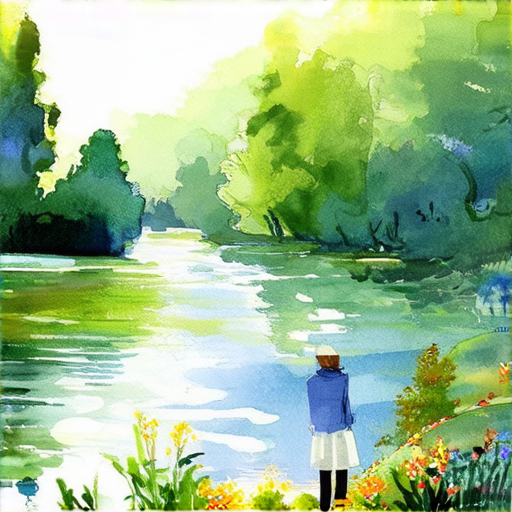As we embark on our journeys through unfamiliar lands, it’s easy to get caught up in the excitement of exploring new cultures, trying exotic foods, and immersing ourselves in vibrant traditions. However, navigating cultural norms can often feel like a daunting task, especially when we’re unsure of what’s considered polite or respectful behavior in a particular society.
Culturally sensitive travelers understand that embracing local customs and etiquette is crucial to having a meaningful and enriching experience abroad. By doing so, they not only avoid unintentionally offending locals but also gain a deeper appreciation for the complexities and nuances of different cultures.
In today’s world, where globalization and technological advancements have made travel more accessible than ever, it’s essential to develop the skills and knowledge necessary to navigate complex cultural landscapes with confidence and sensitivity. Whether you’re a seasoned traveler or just starting to explore the world beyond your borders, this comprehensive guide will provide you with valuable insights and practical advice on how to become a culturally aware and responsible traveler.
From understanding local customs and etiquette to appreciating the significance of cultural heritage sites, we’ll delve into the intricacies of cultural travel and explore what sets it apart from other forms of tourism. We’ll also examine the role of travel guides in modern cultural travel, discuss the evolution of cultural tourism, and highlight the importance of respecting local norms and traditions.
Whether you’re looking to immerse yourself in the vibrant culture of Tokyo, explore the ancient ruins of Machu Picchu, or simply want to learn more about the cultural practices of different societies, this guide will equip you with the knowledge and skills necessary to navigate even the most complex cultural landscapes with ease and respect.

Becoming a Culturally Sensitive Traveler
As a traveler, I strive to immerse myself in local cultures and traditions, respecting the customs and ways of life that I encounter.
-
Learn About Local Customs and Traditions
-
Be Mindful of Your Actions
-
Engage with Locals
-
Support Local Businesses
-
Respect the Environment
-
Cultivate Empathy and Understanding
-
Stay Informed and Up-to-Date
Before traveling to a new destination, take the time to learn about the local customs and traditions. Research the dress code, dining etiquette, and social norms of the area you’ll be visiting. This will help you navigate unfamiliar situations with confidence and respect.
Be aware of how your actions may impact the local community. Avoid taking pictures of people without permission, refrain from touching or handling sacred objects, and be respectful of private property.
Making an effort to engage with locals can greatly enhance your travel experience. Strike up conversations with shopkeepers, restaurant owners, and fellow travelers to gain a deeper understanding of the culture and way of life.
When possible, support local businesses and artisans by purchasing handmade goods or eating at family-owned restaurants. This helps to inject money into the local economy and promotes cultural preservation.
Take steps to minimize your environmental impact while traveling. Reduce your plastic usage, recycle whenever possible, and choose eco-friendly accommodations and transportation options.
Traveling is a chance to broaden your perspective and challenge your assumptions. Approach unfamiliar cultures with empathy and an open mind, recognizing that there’s always more to learn and discover.
Stay informed about local events, festivals, and holidays to avoid unintentionally offending locals. Keep up-to-date with travel advisories and safety guidelines to ensure a smooth and enjoyable journey.
By embracing these principles, you’ll be well on your way to becoming a culturally sensitive traveler who respects and appreciates the diversity of our global community.
At Bending Borders, we believe that cultural immersion is key to a truly transformative travel experience. Our platform offers a wealth of resources and inspiration to help you navigate unfamiliar cultures with confidence and respect.
Whether you’re a seasoned traveler or just starting out, remember that cultural sensitivity is a skill that takes practice and patience to develop. By approaching each new experience with an open heart and mind, you’ll not only enrich your own travels but also contribute to a more harmonious and interconnected world.
Are Travel Guides Still a Thing?
In today’s digital age, the role of traditional travel guides has evolved significantly.
- The rise of online platforms and social media has made it easier for travelers to access information and connect with others who share similar interests.
- However, despite the abundance of digital resources, many travelers still find value in traditional travel guides.
Why Travel Guides Remain Relevant
- Cultural Insights: Travel guides offer a deeper understanding of local cultures, customs, and traditions, which can enhance the travel experience.
- Personal Recommendations: Guides often provide personalized recommendations based on individual preferences and interests.
- Offline Access: Travel guides remain accessible offline, making them a reliable resource for travelers in remote or areas with limited internet connectivity.
Evolution of Travel Guides
- Digital Integration: Many modern travel guides now incorporate digital components, such as apps and online platforms, to provide a more comprehensive experience.
- Niche Focus: Specialized guides cater to specific interests, such as food, adventure, or luxury travel, offering a more tailored approach.
- User-Generated Content: Online platforms allow travelers to contribute their own reviews and recommendations, creating a dynamic and community-driven resource.
Conclusion
While digital resources have transformed the way we plan and navigate our travels, traditional travel guides continue to offer unique benefits and value.
By embracing the evolution of travel guides and leveraging their strengths, travelers can create a more immersive and memorable experience.
At Bending Borders, we recognize the importance of balancing digital innovation with timeless travel wisdom.

Understanding Cultural Travel
Cultural travel, also known as immersive travel, is a type of travel that focuses on genuinely understanding a place, going beyond typical tourist attractions.
- Connecting with local communities, traditions, food, and ways of life
- Exploring off-the-beaten-path destinations and hidden gems
- Engaging with local cultures through homestays, language classes, and community-based tourism initiatives
- Developing a deeper appreciation for the history, customs, and values of the places we visit
The Importance of Cultural Travel
Cultural travel has numerous benefits, including:
- Fostering cross-cultural understanding and empathy
- Encouraging sustainable tourism practices
- Supporting local economies and communities
- Providing opportunities for personal growth and self-discovery
Bending Borders: A Platform for Cultural Exploration
Bending Borders is a cultural exploration platform that shares travel stories, global insights, and diverse perspectives to bridge cultural divides.
- We highlight unique destinations, travel tips, and cultural insights for readers interested in learning about the world from varied viewpoints
- Our platform appeals to travelers, culture enthusiasts, and those curious about international experiences
- We strive to provide authentic and immersive travel experiences that go beyond traditional tourism
Competitors in the Cultural Travel Space
Other notable players in the cultural travel space include:
Best Practices for Cultural Travelers
To make the most of your cultural travel experience, consider the following best practices:
- Research and respect local customs and traditions
- Engage with local communities and support small businesses
- Be mindful of your environmental impact and reduce waste
- Stay open-minded and adaptable, and be willing to try new things
Conclusion
Cultural travel offers a unique opportunity to connect with local cultures, develop a deeper understanding of the world, and foster cross-cultural understanding and empathy.
By following best practices and choosing responsible tour operators, we can ensure that our travels have a positive impact on the communities and environments we visit.

What is an Example of a Cultural Tourist?
Cultural tourists are individuals who travel to explore and engage with local cultures, traditions, and ways of life.
- They may visit museums, historical landmarks, and cultural festivals to gain a deeper understanding of the host country’s heritage.
- Cultural tourists often participate in local activities, such as cooking classes, language lessons, and traditional crafts workshops, to immerse themselves in the local culture.
- They may also interact with locals, attend cultural performances, and try local cuisine to broaden their cultural horizons.
Types of Cultural Tourists:
- Soft Cultural Tourists: These individuals prefer to observe and learn about local cultures from a distance, often visiting popular tourist attractions and taking guided tours.
- Hard Cultural Tourists: These individuals actively engage with local cultures, participating in hands-on activities and interacting with locals to gain a deeper understanding of the host country’s customs and traditions.
Examples of Cultural Tourists:
- A traveler who visits Japan to attend a traditional tea ceremony and learn about the country’s rich history and culture.
- A foodie who travels to Italy to take a pasta-making class and sample local wines and cheeses.
- A music lover who attends a jazz festival in New Orleans to experience the city’s vibrant music scene and cultural heritage.
Cultural tourists can have a positive impact on local communities, promoting cross-cultural understanding and exchange, and supporting local economies through responsible tourism practices.
Understanding the Casual Cultural Tourist
Casual cultural tourists are individuals who engage in cultural activities during their travels, but their primary motivation for traveling is not necessarily cultural.
-
Their experiences may be shallow and lacking in depth, as they often rely on surface-level interactions and observations rather than delving deeper into local customs and traditions.
-
Casual cultural tourists may visit museums, attend cultural events, or try local cuisine, but these activities are often seen as secondary to their primary interests, which may include relaxation, adventure, or socializing.
-
This type of tourist may not have a strong desire to learn about the local culture or immerse themselves in it, preferring instead to observe from a distance and take part in superficial interactions.
Distinguishing Characteristics
-
Casual cultural tourists tend to prioritize convenience and ease of access over authenticity and immersion.
-
They may rely heavily on guided tours or packaged experiences, which can limit their opportunities for genuine cultural engagement.
-
These tourists often have limited knowledge of the local culture and may not speak the language, making it difficult for them to navigate and appreciate the nuances of the destination.
Implications for Travelers and Destinations
Casual cultural tourists can have a significant impact on destinations, particularly if they are numerous and concentrated in popular areas.
-
Destinations may need to adapt their marketing strategies to appeal to this type of tourist, emphasizing convenience and accessibility over cultural immersion.
-
Travelers, on the other hand, may benefit from taking steps to deepen their understanding of the local culture, such as learning a few basic phrases, reading about local customs, or seeking out authentic experiences.
Conclusion
In conclusion, casual cultural tourists are individuals who engage in cultural activities during their travels, but their primary motivation is not necessarily cultural.
By understanding the characteristics and implications of this type of tourist, we can better tailor our approaches to meet their needs and preferences, ultimately enriching their experiences and fostering greater appreciation for local cultures.

Understanding Dark Tourism
As a traveler, I’ve often found myself drawn to places that are shrouded in mystery and intrigue.
- From haunted mansions to former concentration camps, these destinations offer a glimpse into the darker side of human history.
- But what exactly is dark tourism?
Dark tourism, also known as thanatourism, refers to the act of traveling to places associated with death, suffering, or the macabre.
- The term was first coined in the 1990s by John Lennon and Malcolm Foley, who defined it as “the act of traveling to places associated with death and suffering.”
- Since then, the concept has evolved to encompass a broader range of experiences, from visiting museums dedicated to serial killers to taking guided tours of abandoned asylums.
Why Do People Engage in Dark Tourism?
There are several reasons why people might be drawn to dark tourism:
- Curiosity: Many people are simply fascinated by the darker aspects of human history and want to learn more about them.
- Schadenfreude: Some individuals may enjoy experiencing a thrill or sense of excitement through exposure to morbid or disturbing content.
- Memento mori: Others may see dark tourism as a way to confront mortality and appreciate the fleeting nature of life.
Examples of Dark Tourism Destinations
Some popular examples of dark tourism destinations include:
- The Anne Frank House in Amsterdam, which commemorates the Jewish girl who wrote a diary during WWII
- The Auschwitz-Birkenau Memorial and Museum in Poland, which preserves the remains of the Nazi concentration camp
- The Mutter Museum in Philadelphia, which features a collection of unusual medical specimens and artifacts
These destinations offer a unique opportunity to engage with the past and gain a deeper understanding of the complexities of human history.
Responsible Dark Tourism
While dark tourism can be a fascinating and educational experience, it’s essential to approach it responsibly:
- Be respectful of the location and its history
- Avoid sensationalizing or exploiting the subject matter
- Support local communities and economies
By doing so, we can ensure that our fascination with the darker side of human history does not come at the expense of dignity or respect.

0 Comments